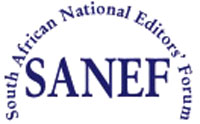






At a meeting with the parliamentary Press Gallery Association, the deputy president told journalists there might be a "meeting point" over such a public interest defence provided it does not undermine the purpose of the Bill.
In submissions to parliament SANEF and other stakeholders have argued that a carefully formulated public interest defence against criminal liability for the disclosure of state secrets would not be a carte blanche for journalists, or place them above the law. It would rather set out carefully defined grounds for disclosure of classified information where it revealed evidence of significant incompetence, criminality, wrongdoing, abuse of authority or hypocrisy on the part of government officials.
Indeed, a detailed definition has been provided to parliament, which the association believes provides for many of the issues that could be raised for such a defence to operate firmly within the Bill's stated aims. It reads as follows.
Of course, it would be up to the courts to adjudicate whether disclosure by journalists or other citizens met these clear standards, or not.
SANEF believes this approach is consistent with the ambitions set out in the preamble to the Bill. These include "Recognising the importance of information to the national security; acknowledging the harm of excessive secrecy; affirming the constitutional framework for the protection and regulation of access to information; desiring to put the protection of information within a transparent and sustainable legislative framework; and aiming to promote the free flow of information within an open and democratic society without compromising the security of the Republic."
The association looks forward to further progress in ensuring that this bill is a democratic instrument for the management of sensitive information, rather than a tool to suppress the free exchange of information and ideas that is central to South Africa's constitutional dispensation.